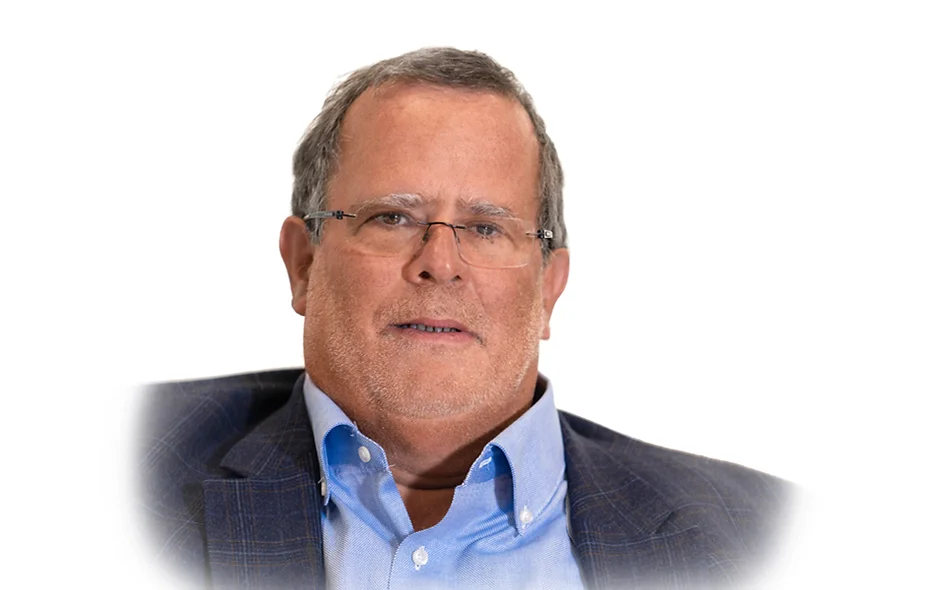On 24 March, Stuart Peltz, CEO, PTC Therapeutics, announced his retirement. In one of his last interviews as CEO, he talks to Isabel O’Brien about his company’s journey to becoming a multinational corporation, his views on workplace culture and much more
Words by Isabel O’Brien
Tell us the story about how and why you founded PTC Therapeutics
So, I started PTC Therapeutics 25 years ago, which is a little unusual in that I’m the founder and CEO and I’m still here after 25 years. Before that, I’d been a professor at Rutgers University, but I thought – what’s next? The work we were doing was really fundamental, understanding some aspects of RNA biology, and I thought it would be a good time to take that information and turn it into a company.
In 1998, we got our first round of funding. We got about $1.5m from David Allen and Bob Swanson. Bob Swanson was the founder and former CEO of Genentech and David Allen was one of his first employees. So, pretty good godparents for the initial founding of the company.
I always think there is a solution to every problem
Now that we had a little bit of money, I set up a lab within the university, hired a few people and then went out to raise additional dollars to continue to grow the company. And the goal was a big goal at the time, but if you look at our business plan now, it’s pretty similar to the plan we had then, which was to discover, develop and commercialise new therapies for patients with high unmet medical needs, primarily in rare diseases.
When I think about where we started, with a couple of people in the lab, to where we are now, which is 1500 people around the world in 20 different offices with approximately $700m in revenue last year. I feel like we’ve done something unusual, which is to build a biopharmaceutical company.
What is an average day like as CEO of PTC Therapeutics?
Usually pretty busy. We have multiple registration trials going on, so there’s always something that is high priority, so I have to assess and prioritise those urgencies at the start of the day. After that, I do a myriad of things. I talk to a lot of people across the organisation – I like to meet every new recruit and get to know them and welcome them to PTC. I go to and participate in leadership programmes and scientific meetings. There are also commercial, clinical, regulatory and financial meetings that I attend. So, I’m constantly going from one thing to another and my mind has to switch to whatever the next thing is, whatever the next topic is, but I’m constantly learning. And that’s exciting – right?
What does a great company culture look like to you?
What makes a company successful is clearly having the right strategy and the right leadership, but for me culture is king. When you’re doing the things that we do, which are complex, and by complex, I mean the unknown, you have to keep innovating. So, you need an innovative approach to teamwork.
At the end of the day, you want people to fight like mad for the best idea, so that the best idea wins. The only way you can do that is if people believe that the most important thing is what’s best for the patient. So, they don’t care if you win or I win, they’re part of the solution. And when you get a team working like that, that’s when you get real innovation.
You can have very smart people who can do great things, but they can also break a lot of glass. Everyone has worked with these people, and they are very good at getting things done, but not very good at living up to the expectations of the company. How you do is as important as what you do. And I believe we can get further together with teamwork.
What has been your proudest moment as CEO of PTC Therapeutics?
I was very proud when we acquired Emflaza, which is a corticosteroid that is approved in the US for all patients living with Duchenne Muscular Dystrophy (DMD). It was atypical for us in the sense that it was a drug that was already approved for DMD, but we did not develop the drug ourselves.
You have to be relentless to succeed
Before it was approved in the US, families would go to Mexico or Europe to get it. The problem for many parents is that having a child with a rare disease can force a family into poverty faster than you think. Someone has to give up a job to take care of the child, and it is a high burden on the family and divorce rates are much higher.
So, the most important thing for me was that it was the best thing for the patient. It didn’t matter to me whether it was a therapy that we had developed in the lab or whether we could just show that it was effective. I wasn’t interested in the credit. I was interested in bringing the best drug to patients.
What three words would your closest friend use to describe you? And why?
Optimistic, relentless and undeterred. I always think there is a solution to every problem. And I don’t give up. At PTC, we’re doing evolutionary biology. You have to test and guess, and that’s different from most other sciences. Evolution is the only rulebook you have, and you haven’t been there for billions of years of evolution. You have to be relentless to succeed.









